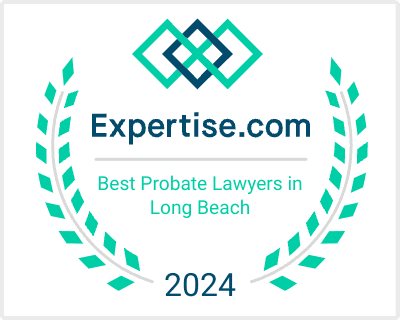
Cannon Legal Firm Areas of Practice
I know how overwhelming and confusing legal matters can be, that's why I focus on guiding you every step of the way so that you are well-informed and can help you feel more confident in the legal process.
Optimizing Top-Level Knowledge and Experience in Estate and Trust matters
Areas of Practice
An Advocate You Can Rely On And Legal Expertise You Can Trust
Your Attorney
Dana M. Cannon has many years of experience with probates, conservatorships, trusts, and estates. During that time, she has advised clients on multimillion-dollar trust administrations; handled complex litigation; performed estate planning; and represented clients in contested and uncontested conservatorship, guardianship, probate, and trust matters.
She has been a volunteer at the Los Angeles Superior Court Pro Bono Probate Settlement Program since it began.
Dana is a member of the professional advisor committee for the Ocean Institute in Dana Point, California.
She is a proud member of the Long Beach Bar Association, the Orange County Bar Association, the Estate Planning and Trust Council of Long Beach, and Elder-Ring.com.
Dana understands that these matters may not just involve money. They are often fueled by emotions and because of that this isn’t just business, it’s personal. She looks forward to assisting you with your legal needs.
Law You Can Understand
I know that legal action can sometimes be overwhelming and confusing. If you don't feel like you understand your options, just ask, and I will ensure that you are well-informed so that you can feel confident in your legal options as you move forward.
Focus on Results
The first step in working with us is to develop a plan to help you get the outcome and results you need. Through my understanding of the law and your understanding of the specific circumstances, we will craft a path to your legal success.
Telephone or Virtual Consultation
Your health and well-being are important to me. Schedule your free telephone, virtual, or socially distanced appointment today.
Testimonials
Very responsive and knowledgeable. Gave me a free video consultation. Very happy with the advice on my sister's probate and my own estate plan.
Frank H.
Long Beach, CA
Dana Cannon provided us with expert advice on our trust administration questions during a free virtual consultation. The online appointment process was easy and we will look to her for additional advice as the process continues.
William Starr
Facebook Review, 2/20/21
I was very pleased with the response time and the assistance I received from Cannon Legal Firm. They gave me a free consultation and answered my questions. I will definitely be recommending Cannon Legal Firm to anyone who needs estate planning advice.
Bernice B.
Huntington Beach, CA
Fast response time and very helpful. Offered free virtual consultation. Highly recommend.
Bob H.
Long Beach, CA
Frequently Asked Questions
A Living Trust is a declaration for the management of the assets of the Settlor (the creator of the Trust) that is effective upon its creation for the administration and distribution of assets titled in the name of the Trust. The assets are managed by an individual called a Trustee who is tasked with following the terms of the Trust and complying with the Probate Code, but usually without supervision by the Court. It has the benefit of avoiding probate (if the assets are properly transferred to it) and also for the management of the assets of the Settlor during the Settlor’s lifetime, which can also avoid a conservatorship.
A Will sets forth the Testator’s (the creator) wishes for the management and distribution of the Testator’s assets after his/her death. A Will can be used for the administration and distribution of any assets titled in the name of the Decedent alone. If the Decedent dies with assets with a value in excess of $166,250 that are titled in his/her name alone or with California real property, the Will must be probated or subject to a summary probate proceeding.
A Power of Attorney document appoints an individual, individuals, or an institution to handle specified financial matters on behalf of the person delegating the power. It is effective only for the assets titled in the name of the grantor individually. An agent under a Power of Attorney (called an attorney-in-fact) cannot manage the assets titled in the name of a Trust (unless they are also named as Trustee of the grantor’s Trust). If it contains a provision that allows it to remain in effect upon the incapacity of the grantor, it is referred to as a Durable Power of Attorney.
An Advance Health Care Directive allows you to provide written instruction for your physician, family, and friends so that they know your health care preferences, including the types of special treatment you want or don't want at the end of life, organ donation, and your wishes regarding your funeral, burial and/or cremation.
Conservatorships are court-supervised proceedings that help protect individuals who are unable to protect themselves due to incapacity and/or susceptibility to undue influence. The court documents and procedures required to establish and maintain a conservatorship can be overwhelming. It’s a time-consuming and expensive process in the best of circumstances. It cannot always be avoided with a complete estate plan, but an estate plan with comprehensive Advanced Healthcare Directive; Durable Power of Attorney; and/or a Living Trust can allow family members or trusted advisors to step into the role of attorney-in-fact and/or successor trustee to manage the finances in lieu of a Conservatorship of the Estate and the agent under a healthcare directive can assist in making medical decisions in lieu of a Conservator of the Person.
Physical Abuse – Unexplained old or new cuts, bruises, abrasions, burn marks, restraint marks, broken bones, fractures, or dislocations. Signs of over-medicating, such as decreased mobility, blank stares, drowsiness, and excessive sleeping.
Neglect – Poor hygiene, bedsores. Unsafe living conditions. Person left unattended. Unexplained weight loss and/or dehydration. Missing dentures, glasses, aids, or mobility aids.
Emotional Abuse – Unexplained change in sleeping or eating habits; confusion or disorientation. Changes in behavior, such as anxiety; sadness; depression; agitation; fear of talking openly; or being untruthful when questioned about circumstances. Caregiver(s) will not allow you to speak alone or at all, or elder fears being left alone with certain people. Changes to a long-standing estate plan.
If you suspect elder abuse of someone you know, contact Adult Protective Services, local law enforcement, or where possible have the elderly person evaluated by a psychologist, psychiatrist, or another medical professional who specializes in geriatric care.
The short answer is: it depends. If your mother was a widow or divorced when she died and it was only her Trust, not a joint Trust with someone else, then yes. If your mother was married and her Trust was a joint Trust with her spouse, then you may be entitled to a copy if any portion of the Trust became irrevocable upon the death of your mother.
According to California Probate Code Section16061.7, the Trustee of a Trust must provide a notice that informs you of the existence of the Trust, the name of the Trustee, and that you are entitled to a copy of the Trust in any of the following circumstances:
- When a revocable trust or any portion thereof becomes irrevocable because of the death of one or more of the settlors of the trust, or because, by the express terms of the trust, the trust becomes irrevocable within one year of the death of a settlor because of a contingency related to the death of one or more of the settlors of the trust.
- Whenever there is a change of trustee of an irrevocable trust.
If you think there was a Trust and think that you should be receiving a copy, the best thing to do is to send a letter or email to the person that you believe is the Trustee and request a copy of the Trust. If that correspondence is ignored, you may need to hire an attorney to write a letter on your behalf.
In general, yes. Most Trusts allow Trustees broad powers to manage the assets, which includes buying and selling. If there is a question, consult the Trust document and if that doesn’t answer your question, contact an attorney who can review it for you.
If the Trust is irrevocable due to the death of the Settlor(s) and you are a beneficiary, then you are likely entitled to an accounting. Even if you aren’t entitled to full accounting, as a beneficiary you have a right to receive information about the assets and the liabilities of a Trust. If you believe you are entitled to an accounting, you should make your request in writing to the Trustee and keep a copy of the letter or email. If after 60 days you haven’t received an accounting or some legitimate explanation as to why you aren’t entitled to an accounting, you are entitled to ask the Court to compel an accounting by the Trustee.
Disclosure: The answers contained herein are general responses, based on California law. They are not legal advice and do not constitute the creation of an attorney-client relationship.

I understand that Legal matters can be confusing.
Schedule a Free Consultation to learn how I can help you feel more confident in the legal process.

